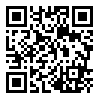
Journal of Emergency Health Care
Formerly known as: International Journal of Medical Investigation

Volume 13, Issue 1 (3-2024)
J Emerg Health Care 2024, 13(1): 86-100 |
Back to browse issues page
Download citation:
BibTeX | RIS | EndNote | Medlars | ProCite | Reference Manager | RefWorks
Send citation to:



BibTeX | RIS | EndNote | Medlars | ProCite | Reference Manager | RefWorks
Send citation to:
MohammadPour S R M. The Effectiveness Of Cognitive-Behavioral Therapy On The Flexibility And Performance Of Married Couples In Isfahan City. J Emerg Health Care 2024; 13 (1) :86-100
URL: http://intjmi.com/article-1-1130-en.html
URL: http://intjmi.com/article-1-1130-en.html
MSc, General Psychology, Baharestan University of Isfahan, Iran.
Abstract: (1223 Views)
Background: The purpose of the present study is to investigate the effectiveness of cognitive behavioral therapy on the flexibility and performance of married couples in Isfahan city.
Method: The research method was semi-experimental and its design was pre-test-post-test with a control group. The statistical population included all couples referred to family psychology clinics in Isfahan city in 1401, who were assigned to two groups (18 experimental subjects) and (18 control subjects) using available sampling method based on the entry and exit criteria. The tools used included the flexibility questionnaire of Dennis and Vanderwaal (2009), the Epstein, Baldwin and Bishab family performance questionnaire (1983) and cognitive-behavioral therapy training sessions. Data analysis was done using statistical methods of covariance analysis and SPSS 23 software.
Results: Cognitive-behavioral therapy has an effect on cognitive flexibility and family performance, and cognitive-behavioral therapy can be considered as one of the important and effective antecedents in treating couples' problems such as psychological flexibility and family performance.
Conclusion: The findings showed that cognitive behavioral therapy has an effect on flexibility and components (willingness to understand difficult situations, the ability to understand several alternative justifications and the ability to create several alternative solutions) and family performance and components (problem solving, Relationship, emotional intercourse) (p < 0.05) and has no significant effect on the components (roles, emotional companionship and behavior control) (P < 0.05).
Method: The research method was semi-experimental and its design was pre-test-post-test with a control group. The statistical population included all couples referred to family psychology clinics in Isfahan city in 1401, who were assigned to two groups (18 experimental subjects) and (18 control subjects) using available sampling method based on the entry and exit criteria. The tools used included the flexibility questionnaire of Dennis and Vanderwaal (2009), the Epstein, Baldwin and Bishab family performance questionnaire (1983) and cognitive-behavioral therapy training sessions. Data analysis was done using statistical methods of covariance analysis and SPSS 23 software.
Results: Cognitive-behavioral therapy has an effect on cognitive flexibility and family performance, and cognitive-behavioral therapy can be considered as one of the important and effective antecedents in treating couples' problems such as psychological flexibility and family performance.
Conclusion: The findings showed that cognitive behavioral therapy has an effect on flexibility and components (willingness to understand difficult situations, the ability to understand several alternative justifications and the ability to create several alternative solutions) and family performance and components (problem solving, Relationship, emotional intercourse) (p < 0.05) and has no significant effect on the components (roles, emotional companionship and behavior control) (P < 0.05).
| Rights and permissions | |
 |
This work is licensed under a Creative Commons Attribution-NonCommercial 4.0 International License. |



